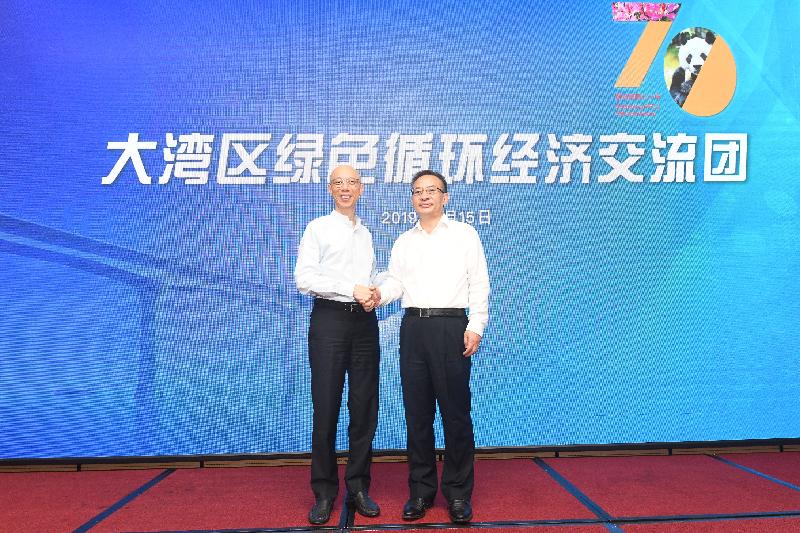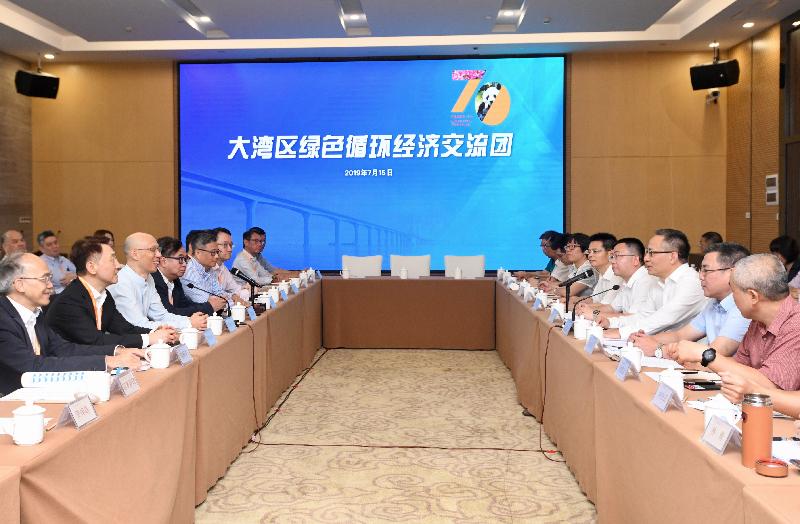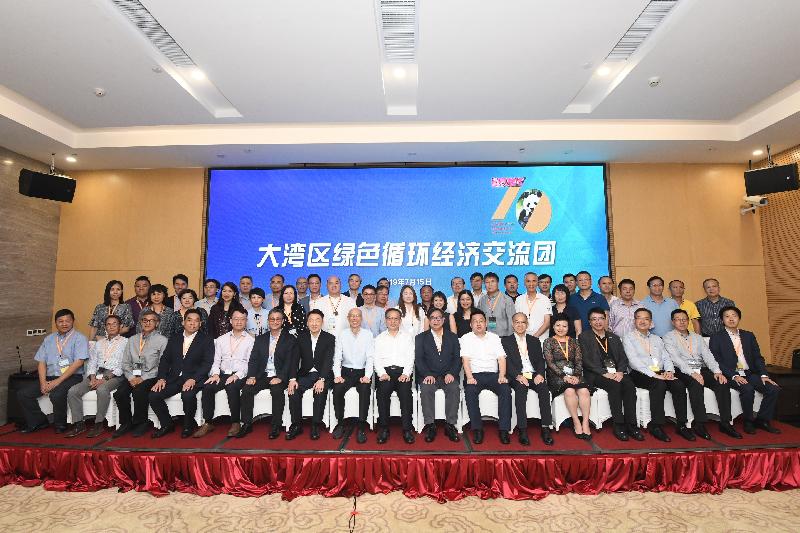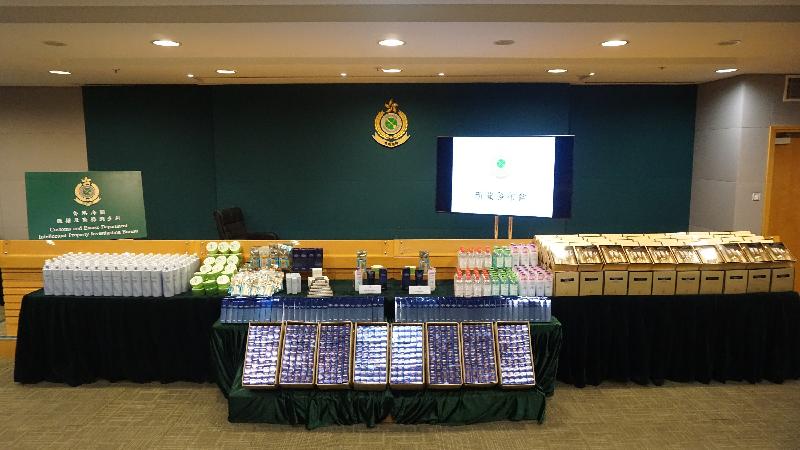SEN leads delegation on Foshan visit to attend exchange session on green circular economy in Guangdong-HK-Macao Greater Bay Area (with photos)
The Secretary for the Environment, Mr Wong Kam-sing, today (July 15) led a delegation comprising representatives from the Hong Kong Trade Development Council and the environmental sector as well as relevant professionals and academics in attending an exchange session on the green circular economy in the Guangdong-Hong Kong-Macao Greater Bay Area. Afterwards, Mr Wong and the delegation visited an environmental industry facility that manages solid waste.
Upon their arrival in the morning, Mr Wong and the delegation attended the exchange session. Representatives from relevant authorities and organisations of Guangdong Province, including the Department of Ecology and Environment of Guangdong Province (GDDEE), the Office of the Leading Group on Construction of Guangdong-Hong Kong-Macao Greater Bay Area of Guangdong Province, the Hong Kong and Macao Affairs Office of the People's Government of Guangdong Province and the Guangdong Association of Environmental Protection Industry also participated in the exchange session. After Mr Wong and the Director-General of the GDDEE, Mr Lu Xiulu, had delivered their speeches, representatives from the two places shared details of their experience in the management of solid waste and the green circular economy.
Speaking at the ceremony, Mr Wong said the Hong Kong Special Administrative Region attaches great importance to the development of environmental protection and the recycling industry. Mr Wong said that the visit was also aimed at promoting technology exchange in relation to the management of solid waste in cities in the Guangdong-Hong Kong-Macao Greater Bay Area as well as enabling Hong Kong to establish better contact with Mainland cities to facilitate closer liaison between the two places in future.
In the afternoon, Mr Wong and the delegation paid a visit to an environmental industry facility that manages solid waste. The facility has a comprehensive industrial network to manage solid waste. While focusing on turning municipal waste into energy, it also has treatment components on food waste, sludge and more. Overall, it converts various types of municipal waste into resources, demonstrating the concept of a circular economy. Mr Wong and the delegation will return to Hong Kong after the visit.



